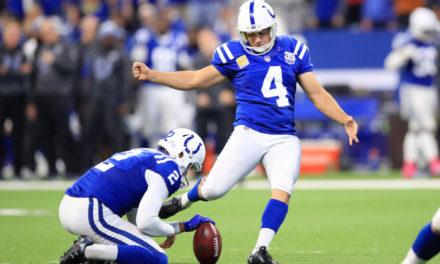
News came out of California this week that the state’s governor, Gavin Newsom, signed Senate Bill 206 which makes it illegal, starting in 2023, for the NCAA to prevent any in-state athlete from profiting off their name, image or likeness.
First of all, this doesn’t mean schools will start paying the players. It means that a player will be allowed to pick up endorsements, sponsorships or employment based on their playing sports.
Here are some scenarios that you will be seeing. It could range from a potential NBA lottery draft pick signing a deal with Nike. It could be the star quarterback appearing in a commercial for a local car dealer. I could also see college athletes returning home to run summer camps.
What it is not is destruction of college athletics, like so many critics are putting out there. The hysteria centers around the idea that the more successful schools will get the top high school athletes to sign with them because they have the boosters who will pay the recruit big money to be a spokesman for whatever their business is.
I do not see this happening. Besides, the NCAA’s “level playing field” simply does not exist. The more money schools spend, the more coaches they employ, the bigger the stadiums they build, the better recruits they get. The boosters are already buying the recruits.

Let me give you some quick facts. Over the past three years in college football there have been 97 players ranked as 5-star recruits by Rivals.com. Five schools; Clemson, Ohio State, Alabama, Georgia, and LSA signed 55 of them (57%). That left 42 for the remaining 125 FBS schools. That is hardly a level playing field. Oh by the way, if you look at the latest AP Poll, those five schools are ranked 1-5 nationally. Well, lookie there.
Even if the rich schools did continue their dominance and horde the best recruits, what changes? I will tell you what changes. The money wouldn’t go to unnecessary associate deputy athletic director salaries and construction contractors for unnecessarily luxurious locker rooms, but, instead, directly to players and their families.
What’s the problem there?
This law actually may level the playing field. Right now Wake Forest, let alone North Carolina, rarely beats Clemson for a recruit. By bringing everything above board, who knows? Isn’t there more money to be made being a three-year starter in a city such as Winston-Salem or Chapel Hill, where you are the undeniable star, rather than just another number in the machine of Clemson.
Does Alabama have crazy boosters that will throw down stupid money? Yes. But every school has crazy boosters that will throw down stupid money.
As for basketball, anyone who denies that Nike, Adidas and Under Armour aren’t already doing this has been asleep for the past few decades. All those kids from Nike aren’t going to Duke by chance. And how do so many Adidas guys end up going to school in Kansas?
This also allows the special players to profit off their own talents and hard work. I read where Zion Williamson had 1.7 million Instagram followers before he even got to Duke. Where is the harm in him profiting off of that?
Perhaps best of all is the impact this could have on athletes outside of football and basketball. This gives thousands of athletes potential to gain local endorsements. They could even market themselves through YouTube channels and social media, like any other student or any other US citizen. If you earn it, you earn it. It’s not the college’s money.
Though they would like you to think it is their money. While researching for this column, I read where one Big Ten School, back in 2010, had an athletic department staff that employed 253 people (coaches and administration) with an average salary of just over $73,000. By 2019, this school raised staff numbers to 388 and the average salary is around $101,000.
And guess what? The school, like all others, have the same number of scholarship athletes. Administrators are taking the money. I am for the athletes having the right to use their name and likeness to generate themselves income.
The NCAA has refrained from comment thus far. This could mean they are coming up with their own ideas on the subject. Meanwhile, you know there will be other states copying California.









